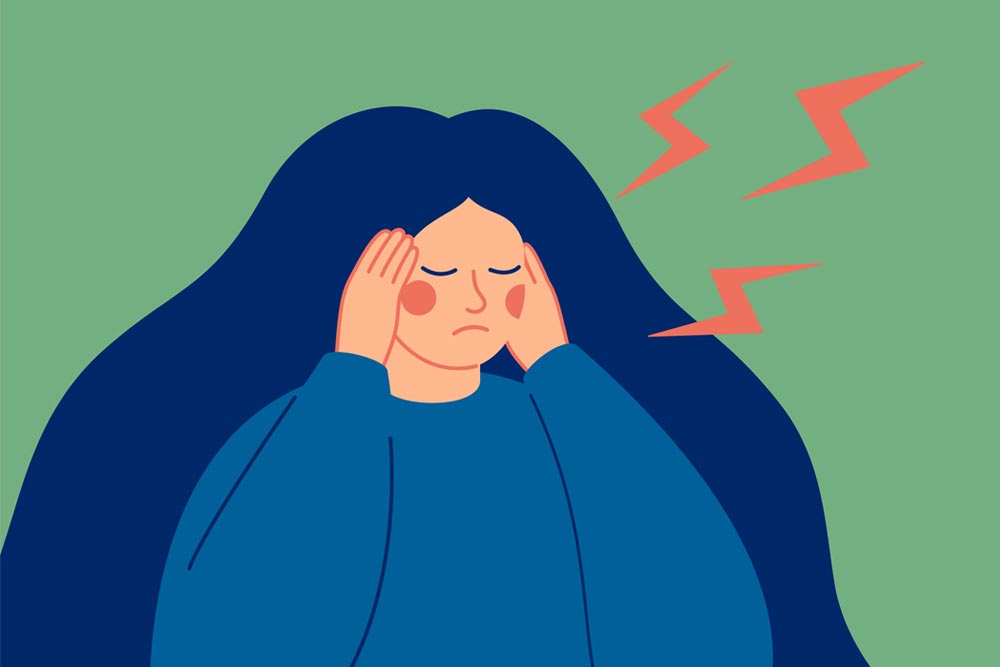
If you’re experiencing worse than occasional headaches, it may be time to ask for help. Specialists from Keck Medicine of USC share potential underlying causes and treatments.
Occasional headaches are normal. But if your pain is chronic, severe or includes other symptoms, it’s time to get checked out.
Your family physician can help you decide if you need to seek advanced care for your symptoms.
Experts from Keck Medicine of USC share common causes of headache and the specialists best suited to help.
Neurology
A migraine is more than just a bad headache.
“Symptoms can include sensory sensitivity, vomiting, dizziness or brain fog,” says Keck Medicine neurologist Lauren Green, DO. Keeping a migraine journal will help your doctor determine the best treatment.
Prevent and treat migraines: lifestyle adjustments, prescription medication, wearable nerve-stimulation devices
Spinal Medicine
Contrary to popular belief, spinal pathology is an uncommon cause. Michael Safaee, MD, of the USC Spine Center, recommends seeing a headache specialist first.
“An MRI will typically rule out spinal nerve compression as the cause,” he says. “Migraine and tension headaches are much more common.”
Healing and pain management: physical therapy, steroid or nerve block injections, surgery
Ear, Nose and Throat
Sinusitis, allergies, ear infections and TMJ are frequent causes of headache, says Keck Medicine otolaryngologist Uttam Sinha, MD.
“It’s rare, but infections can cause meningitis or a clot in a blood vessel,” Dr. Sinha says. If you have severe, painkiller-resistant headaches with eye problems, fever or strokelike symptoms, call 911.
Routine and emergency care: allergy pills or injections, intravenous antibiotics, anticoagulants for thrombosis, surgery
Endocrinology
Hyperthyroidism and diabetic glucose imbalance can worsen migraines. “And pituitary tumors cause chronic headaches at the back of the skull,” says Keck Medicine endocrinologist Trevor E. Angell, MD.
Lifestyle management and medication may be a first step to relief.
Treat the cause: diabetes: modified glucose management; hyperthyroidism: medication; pituitary tumors: surgery
OB/GYN
Lowered estrogen levels may cause intense headaches and migraines.
“It can impact patients during their periods and after menopause,” says Anna Reinert, MD, a Keck Medicine OB/GYN. “Oral contraceptive placebo weeks can affect some patients severely.”
Get personalized treatment: triptan drugs for migraine, magnesium supplements, hormonal support
Brain Tumor
Whether cancerous or benign, a brain tumor puts pressure on surrounding tissue, says Gabriel Zada, MD, director of the USC Brain Tumor Center.
“These headaches are persistent and get worse over time,” Dr. Zada says. “Watch for vision changes, seizures or weight loss.”
Depending on size and type: medication, nonsurgical cancer treatments, surgical removal
Important: If you get a sudden, debilitating headache with a stiff neck, seizures, numbness in the face or extremities, a drooping or dilated eye, trouble speaking or loss of consciousness, it could be a stroke or an aneurysm. Call 911 immediately.
Topics


